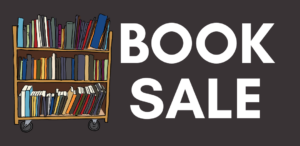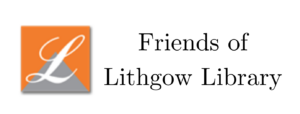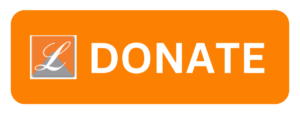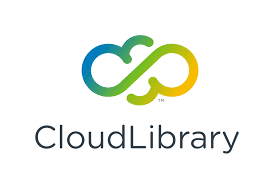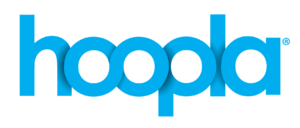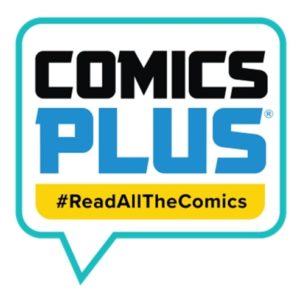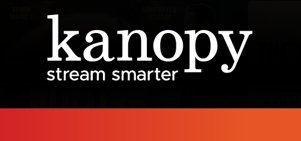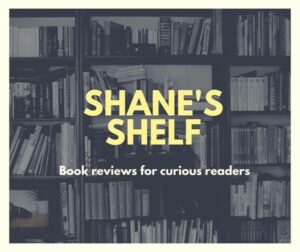Lithgow Library Rules of Conduct
The Lithgow Public Library is focused on providing a safe and welcoming space and experience. To ensure safety, we expect our visitors to:
Show respect for Library staff and fellow users.
Show respect for library collections, equipment, facilities and furniture.
Dress appropriately, including always wearing shirts and shoes.
Manage your personal property.
Library visitors may not:
Use abusive or obscene language or gestures.
Behave in a way that endangers themselves or others.
Impede staff from performing their duties, engage in harassment or threatening behavior, and touch or inquire into the personal lives of staff.
Engage in any illegal activity.
Engage in soliciting or distributing materials.
Smoke, vape, have open tobacco or cigarettes in the library or on its grounds (see Smoke-Free Tobacco Policy).
Bring animals in the library, except service animals that are specifically trained to aid a disabled person.
Consume food unless allowed in a designated area or a part of library programming.
Drinks must be in closed, covered containers.
Lie down, sleep or appear to be sleeping.
Bring in shopping carts, bicycles, scooters and personal property inside that exceeds a total volume of 24” wide x 32” deep x 36” high. Personal items or bags may not be left unattended and should not block aisles, exits or entrances. Bicycle locks are available by request at the Circulation desk on the ground floor.
Move furniture, open windows, adjust blinds or adjust lighting.
Failure to follow these rules or reasonable requests from library staff may result in being asked to leave the library. Repeated disruptive behavior will result in the suspension of library privileges.
Lithgow Chat Guidelines
Guidelines for our Live Chat Service
What we will answer:
- Short reference questions of a general nature and directional information.
- Questions about the use and operation of our technology and technological resources.
- Questions about finding, recommending and assisting with Lithgow’s print and non-print resources on a particular topic/question.
- Questions on MINERVA holdings and how to obtain materials that are not owned by the library.
What we won’t answer
- Requests for legal, medical, financial or tax advice.
- Requests or personal information of individuals that does not pertain to business.
- Verification and editing services for papers, projects, citations, etc.
- Questions that are intentionally inappropriate.
- Questions from tests or exams and in-depth assistance with writing papers or theses.
- Questions requiring in-depth answers on specific topics: these patrons will be referred to a librarian to answer when time allows.
Process and Procedure
Reference questions are answered as quickly and capably as possible. Please be aware that the virtual staff may also be staffing a reference desk and may need to assist others. We will notify you if we are assisting another patron. Please be patient and understanding; reference questions will be answered in the order they are received.
Chat Code of Conduct
Patrons are not allowed to harass, provoke, demean staff or use obscene language. We will not answer any inappropriate or intentionally off-topic questions. We will end chats if we deem a question or interaction to be inappropriate and may report the chat, if necessary.
Internet Safety and Technology Use Policy
Lithgow Public Library provides materials and services to help community residents of all ages meet their educational, recreational and professional needs. In response to advances in technology and the growing availability of information in electronic formats, Lithgow Public Library provides access to all constitutionally protected materials on the Internet within the Library’s means and the boundaries of its policies and the law. It shall be the responsibility of all members of the Library staff to educate, supervise and monitor appropriate usage of the online computer network and access to the Internet in accordance with this policy, the Children’s Internet Protection Act, the Neighborhood Children’s Internet Protection Act, and the Protecting Children in the 21st Century Act.
It is the policy of Lithgow Public Library to:
- prevent user access over its public computer network to, or transmission of, obscene or sexually explicit material via Internet, electronic mail, or other forms of direct electronic communications;
- prevent user access to violent, bigoted or hateful material;
- prevent unlawful online activities such as hacking, plagiarism or copyright violation (copyright violation includes but is not limited to downloading licensed materials such as music, videos, games, or software through peer-to-peer networks);
- prevent use of computers for illegal activities;
- prevent users from harassing or defaming others using Library technology and the Internet;
- prevent unauthorized online disclosure, use, or dissemination of personal information of minors, especially that which could be used to identify or locate an individual; and
- to comply with the Children’s Internet Protection Act [Pub. L. No. 106-554 and 47 USC 254(h)].
Users shall not misuse the Library’s Internet resources or equipment, including wireless Internet (WiFi) connections. Misuse may lead to suspension or revocation of equipment and/or Internet privileges. Misuse includes, but is not limited to:
- using computers or the Internet for illegal activities;
- viewing obscene or sexually explicit images or videos on public computers or using the public WiFi;
- hacking into the Library’s computer system, or any other computer system;
- downloading malicious files, applications or programs to public computers;
- sending harassing communications to other computer users;
- violating copyright and/or software licensing agreements;
- interfering with the Library’s computer settings or security software;
- transmitting illegal or inappropriate materials via the Internet.
The Library shall use technology protection measures (or “Internet filters”) on its public network, which are provided by the Internet Service Provider (MSLN/NetworkMaine). These filters, with settings as applied by Lithgow Public Library staff, are deemed to meet CIPA requirements, restricting access to materials deemed harmful to minors.
Internet filters shall be disabled (by a staff member) for computer users who are 18 years and older, who wish to access constitutionally protected information. Staff may refuse to disable a filter if it is judged that doing so may place the Library at risk of legal action.
Despite this good-faith effort to provide CIPA-compliant filtering, it is universally understood that no filter is one hundred percent effective in preventing access to material deemed harmful to minors or objectionable. Conversely, no filter is one hundred percent effective in ensuring that materials which are not harmful or objectionable will not be blocked. For this reason, filters shall be set at the lowest-possible CIPA-compliant settings at all times.
Regarding the disabling of Internet filters, it is Lithgow Public Library’s policy that:
- adequate signage will be displayed, informing patrons ages 18 years and older of their right to request that filters be disabled;
- authorized staff members are trained to disable filters upon request, in a timely manner;
- procedures for the disabling or otherwise modifying any technology protection measures shall be the responsibility of the Systems Librarian.
Staff Proficiency and Levels of Service
Lithgow Library staff has developed a familiarity with electronic resources and can use this knowledge to assist library users in locating information to meet their needs. Among the staff, experience with the Internet and web-based applications varies, so please be advised that the assistance that any one person can provide may be limited.
Limited Assistance: The productivity applications and online services available through the Internet are numerous, varied and, in many cases, extremely complex. Individual library staff members cannot become expert in all of them. Therefore, the library staff members are not expected to provide in-depth assistance in the use of various productivity applications (such as OpenOffice or Microsoft Office), nor in the various online services (such as e-commerce sites, blogging sites, web-based productivity sites, etc.). Patrons needing in-depth assistance with basic computing skills will generally be referred to sources of additional information or instruction such as online tutorials, or local adult education classes.
Basic Assistance: Library staff will provide patrons with brief “tutorials” on how to navigate the Internet using web browsers; how to print materials; how to use word processing software; and how to set up a free, web-based email account.
In-depth Assistance: Library staff will provide in-depth assistance as needed and as time allows, to patrons in the use of standard sources of online information, such as the library catalogs; online databases such as MARVEL; online training and tutorials such as Learning Express; and search engines.
Patrons using their own laptop or tablet computers are responsible for configuring their own access to the library’s wireless internet service. Library staff are not trained and are not expected to engage in technical troubleshooting of patrons’ computers, when for some reason those computers are unable to connect to the wireless internet service. Staff may troubleshoot the wireless access point or router, if connection problems are reported.
Privacy
All library records regarding a patron’s use of the Internet shall be kept confidential. Those records may only be released with the express written permission of the patron involved or per order of a court. Lithgow Public Library endorses the Library Bill of Rights, including the new interpretation on electronic access, as adopted by the American Library Association, and supports the democratic principle of every citizen’s right to free access to information.
Notice for parents
The Library cannot act in place of parents or guardians (“in loco parentis”), in monitoring their children’s access and use of the Internet and other Library resources. The responsibility of what minors read or view on the Internet rests with parents or guardians.
This Internet Safety Policy was approved by the Lithgow Library Board of Trustees at a public meeting, following normal public notice, on May 24th, 2016.
Lithgow Library Collection Development Policy
Criteria for Selection
The Lithgow Public Library is committed to developing and maintaining a collection of materials that meets the needs, interests, and abilities of the diverse community members of Augusta, ME. Criteria for selection include, but are not limited to, an item’s potential popularity, quality, accuracy, timeliness, and ability to meet a unique need within the collection and the community. All collection development is done within the limitations naturally imposed by budget and space.
The Library always adheres to the principles outlined in the American Library Association’s “Library Bill of Rights;” these ethics guide all decisions made with respect to the Library’s collection.
Selectors
Materials are selected by the following staff: Library Director, Systems Librarian, Youth Services Librarian and Teen Services Coordinator, for their respective constituencies. Additional library staff may also provide input in ordering materials.
Method of Materials Selection
Librarians should exercise their knowledge and experience of the library’s collection and of the community served. Each type of material must be considered in terms of its own merit and intended audience.
Reviews in professionally recognized periodicals are a primary source for material selection. Selectors should also use the High-Demand Holds feature in SIERRA to ensure there are adequate local copies in the system to meet the demand of Lithgow members.
Requests
All requests from patrons for specific titles or subject requests will be considered, if they meet our criteria for selection.
In-Kind Donations
All items donated to the Library are referred to the appropriate selector for evaluation for inclusion in the collection. Considerations used in evaluation include, but are not limited to, timeliness, condition, quality, ease of processing, fit with material already in the collection, and available space. Items not chosen for use in the collection are placed in the Friends of Lithgow Library’s book sale or given away for free. If a donor wishes material not chosen for selection to be returned, he or she must make that wish clear upon delivery of said material. As the Library does not employ professional appraisers, any written acknowledgement of in-kind contributions will list only the appropriate bibliographic information and number of titles; it is up to the donor to set a value for tax purposes.
The library does not typically add self-published books to the collection except in cases of high local interest. Library staff are not available to professionally review self-published works.
Monetary Donations
The Library welcomes unrestricted monetary donations for use in building the collection. Donors should be directed to the Library Director. If a donor wishes to specify a part of the collection the donation should be used for, he or she will be referred to the appropriate selector for discussion. Memorial gifts that have been specified for use in developing the collection will be recognized with book plates. The Library is not required to accept monetary donations that are restricted to the acquisition of specific titles.
Replacement of Lost/Damaged Materials by Patrons
Patrons are required to compensate the library for lost/damaged materials through payment for the items. Replacement copies will be accepted in lieu of payment, if they are new and in the same format as the copy they are replacing.
Withdrawal of Materials
The health of any library collection depends on periodic deselection, or “weeding.” It is the responsibility of each selector to assess on a regular basis the collection under his or her oversight in order to weed out superfluous items. Criteria for weeding include, but are not limited to, condition, duplication within the collection, circulation (or lack thereof), accuracy, and timeliness. At no time will a title be removed from the collection for ideological reasons.
Reconsideration of Materials
The Lithgow Public Library defends and protects the First Amendment rights of each of its users by providing access to the widest possible range of materials, which in some cases may include extreme or unpopular points of view. While individuals are free to personally reject materials of which they do not approve, individuals or groups may not restrict or exercise censorship over anyone else’s freedom to read or inquire. Parents or guardians have the primary responsibility to guide and direct the reading and viewing of their own minor children. The library does not stand in loco parentis.
Individuals may take issue with library materials that do not support their tastes and views. Staff are available to discuss concerns and identify alternate materials in the collection, or to assist patrons in obtaining them through Inter-Library Loan service. If a patron’s concern is not satisfied through discussion with staff, a formal, written request for reconsideration of materials may be submitted to the Library Director. Copies of this form are available at the public service desks or from the Library Director.
For a request for reconsideration to be evaluated, the relevant form must be completed in full. The patron submitting the request must be a resident of Augusta, Maine, or hold a valid library card. The Library Director will respond, in writing, within 30 days of receipt of the completed form. If a requestor submits multiple requests, the director will have 30 days serially for each request, in recognition of the time involved in responding to each request. If the director is unable to respond within 30 days, the director will write to the requestor, explaining the delay. The director will read the request in its entirety. The response will indicate the action to be taken and the reasons for or against honoring the request. An item will only be evaluated for reconsideration once in a 12-month period. During the reconsideration process, the material or program will remain available in the Library.
Should the complainant not be satisfied with the response of the Library Director, he or she may appeal the matter to the Board of Trustees. The decision of the Board of Trustees will be final.
The Lithgow Public Library is not a judicial body. Law governing obscenity, subversive materials and other questionable matters are subject to interpretation by the courts. Therefore, no challenged material will be removed solely for the complaint of obscenity or any other category covered by law until after a court of competent jurisdiction has ruled against the material. No materials will be knowingly added to the library collections that have been previously determined to be in non-compliance with federal, state and local laws.
Updated by the Board of Trustees of the Lithgow Library and Reading Room on 6/24/25
Attachment A Library Bill of Rights
The American Library Association affirms that all libraries are forums for information and ideas, and that the following basic policies should guide their services.
I. Books and other library resources should be provided for the interest, information, and enlightenment of all people of the community the library serves. Materials should not be excluded because of the origin, age, background, or views of those contributing to their
II. Libraries should provide materials and information presenting all points of view on current and historical issues. Materials should not be proscribed or removed because of partisan or doctrinal disapproval.
III. Libraries should challenge censorship in the fulfillment of their responsibility to provide information and enlightenment.
IV. Libraries should cooperate with all persons and groups concerned with resisting abridgment of free expression and free access to ideas.
V. A person’s right to use a library should not be denied or abridged because of origin, age, background, or views.
VI. Libraries which make exhibit spaces and meeting rooms available to the public they serve should make such facilities available on an equitable basis, regardless of the beliefs or affiliations of individuals or groups requesting their use.
VII. All people, regardless of origin, age, background, or views, possess a right to privacy and confidentiality in their library use. Libraries should advocate for, educate about, and protect people’s privacy, safeguarding all library use data, including personally identifiable
Adopted June 19, 1939, by the ALA Council; amended October 14, 1944; June 18, 1948; February 2, 1961; June 27, 1967; January 23, 1980; January 29, 2019. Inclusion of “age” reaffirmed January 23, 1996.
Lithgow Library Programming Policy
The Lithgow Public Library is committed to developing and providing programming that meets the needs and interests of the diverse community members of Augusta. A cultural, educational, and recreational focal point, the Lithgow Public Library offers programming for children, teens, and adults. All programming is organized and vetted by a committee led by librarians and library staff and is done within the limitations of budget and space. Criteria for hosting programs includes potential popularity, quality, and accuracy.
Programs may take place within or outside the library, or virtually. Program types include story times, lectures, workshops, discussion groups, performances, readings, book talks, demonstrations, and panel discussions. Programs may be presented by Library staff or volunteers, as well as paid presenters or performers.
The library may co-sponsor programming with other organizations, individuals, and educational institutions, capitalizing on their existing knowledge and expertise. Co-sponsored programs may take place within or outside the library. Publicity materials will be prepared by Library staff and will indicate the event co-sponsor.
Sales, entering into contracts, advertising, or promoting products or services, and exchanging money or other property of value are prohibited at programs. Book or music sales connected with a performance or lecture, and events sponsored by the Friends of Lithgow Library are exceptions.
Programs will be promoted through the library’s usual publicity outlets.
Maximum attendance limits may be set for some programs or workshops, with advance registration required. This will be indicated in the program’s advance publicity. Advance registrations will generally be accepted via telephone, in person, or on our website calendar.
In accordance with the American Library Association’s Library Bill of Rights, no person’s right to attend a library program may be denied or abridged because of a disability, whether actual or perceived. Physical access to the library should also not be a barrier to library use. In compliance with the Americans with Disabilities Act (ADA), we will make sure there is seating available for anyone who needs accommodation.
The library reserves the right to cancel programs and will make every effort to notify the public in advance. Programs scheduled on a day when the library is closed due to inclement weather are automatically cancelled. Rescheduling is at the discretion of the library staff.
Library staff will collect statistics and regularly evaluate programs and services to make sure the needs of the library community are being met within staff and budget limitations.
Approved by the Board of Trustees of the Lithgow Library and Reading Room, 9/24/24
Lithgow Library Sustainability Policy
Lithgow Public Library strives to apply environmentally sound, socially equitable, and economically feasible practices to intentionally address climate change and co-create thriving communities. As a public library located in the capital, we recognize our duty to serve and represent not only our Augusta community, but also the state of Maine as a whole. In acknowledgement of the American Library Association adopting sustainability as a core value of librarianship, the Board of Trustees and staff of Lithgow Public Library recognize the important role libraries can play in larger community conversations about resiliency, climate change, and a sustainable future. We are committed to applying sustainable thinking in the areas of our facilities, operations, policy, technology, programming, and partnerships.
As sustainability practices evolve, we strive to continue to learn and educate others. As we seek to reduce our impact on the environment, we are committed to continually evaluating our processes, and taking actions to:
- Reduce the amount of energy we consume
- Reduce the amount of natural resources we consume
- Reduce the amount of pollutants we contribute
- Increase the amount of recycling in our waste stream
- Sustainably plan and manage our indoor and outdoor spaces
- Make purchasing decisions that place a high value on sustainably produced products, products from local businesses, items made of recycled and/or eco-friendly materials, energy star rated products, all while factoring in transportation, packaging costs and health impacts
- Promote the use of sustainable transportation
- Educate staff on sustainability goals and practices by implementing proper training
- Sustainably obtain, manage, and dispose of library collections
- Consider collective impact and social cohesion in our programs, outreach, partnerships and advocacy work
- Promote sustainability and social equity in our programs, outreach, partnerships and advocacy work
- Ensure resiliency by maintaining financial sustainability, a disaster preparedness plan, and an environmentally-conscious strategic plan
Lithgow Public Library is committed to reducing our environmental impact and maximizing future generations’ ability to live, work, and play in our shared natural environment, with equal access to clean air, clean water, and natural resources.




